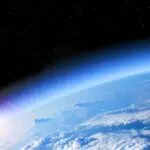Collect Rocks Day is on September 16 and we are already getting our tools ready to start digging and collecting. This day allows us to have a nice day out but also learn more about the planet we inhabit and how it’s formed. Here are some ideas on how to celebrate this day.
History of Collect Rocks Day
The history of Collect Rocks Day can be traced back to two main subjects: 1) the history of our home — Earth and 2) the history of the science that studies the solids, liquids, and gases that constitute our planet — geology.
It’s difficult to give a brief explanation of how Earth was formed so we’re going to skip forward a few million years and learn about geology. After all, this is more in tune with the day we want to celebrate. Humanity has always been curious about how rocks are formed. Ancient civilizations would find explanations that were based more on superstition than scientific rigor.
James Hutton is considered by many to be the first geologist. He was a doctor and farmer who retired to dedicate his time to study the formation of rocks. He disputed some popular beliefs amongst the scientific community around the assertion that all rocks were formed under the sea.
By the 20th century, studies in geology helped push theories about the exact age of planet Earth and how continents were shaped. Advances in this science have been so great that humans not only study the formation of rocks on Earth but also on other celestial bodies such as the Moon. Geology has contributed a body of knowledge that helps us understand the planet we inhabit and the effects our activities have on it.
Collect Rocks Day timeline
The National Museum of Natural History in France creates the first courses specializing in geology.
This is a ground-breaking publication intending to show that the formation of Earth was a product of natural forces.
Collect Rocks Day is taken to another level by Apollo 11 astronauts who bring back the first samples of lunar rocks.
Collect Rocks Day is celebrated for the first time.
Collect Rocks Day FAQs
Is it the same as Earth Day?
No. Earth Day is observed on April 22.
Do museums give discounts for this day?
This will entirely depend on the institution you are visiting. Be sure to check their website.
Are all rocks safe to pick up?
Bear in mind that picking up rocks in protected natural reserves may be against the law.
How to celebrate Collect Rocks Day
Visit a natural history museum
Museums are informative and fun! Schedule a trip to your nearest museum on this day.
Get your hands dirty
Whether it’s collecting pebbles for home decorations or digging rocks in the backyard, we are certain it will be a good time.
Get creative
There are many ways to display your findings. How about spending an afternoon painting rocks?
5 Solid Facts About Rocks
There are three different types of rocks
Igneous, sedimentary, and metamorphic.
Space rocks crash on earth
That shooting star you saw? It was a meteorite falling to earth.
There’s gold and silver in some of them
These rocks are called ore.
Humans have always used rocks
Early humans made weapons with them — now, we make everything from writing tools to construction materials
Some of them come from lava
Igneous rocks come from molten magma that has cooled down.
Why we love Collect Rocks Day
It gives us an opportunity to learn about our planet
And that’s the perfect way to understand why it’s so special and in need of care.
Everyone can find an activity to do
It doesn’t matter how old you are, Collect Rocks Day can be enjoyed by everyone. Kids might attend geology-focused lessons in school but adults can enjoy a relaxing rock-picking stroll.
It’s a great way to introduce kids to geology
Celebrating the importance of geology might inspire a few young ones to pursue it later in life.
Collect Rocks Day dates
| Year | Date | Day |
|---|---|---|
| 2024 | September 16 | Monday |
| 2025 | September 16 | Tuesday |
| 2026 | September 16 | Wednesday |
| 2027 | September 16 | Thursday |
| 2028 | September 16 | Saturday |

































